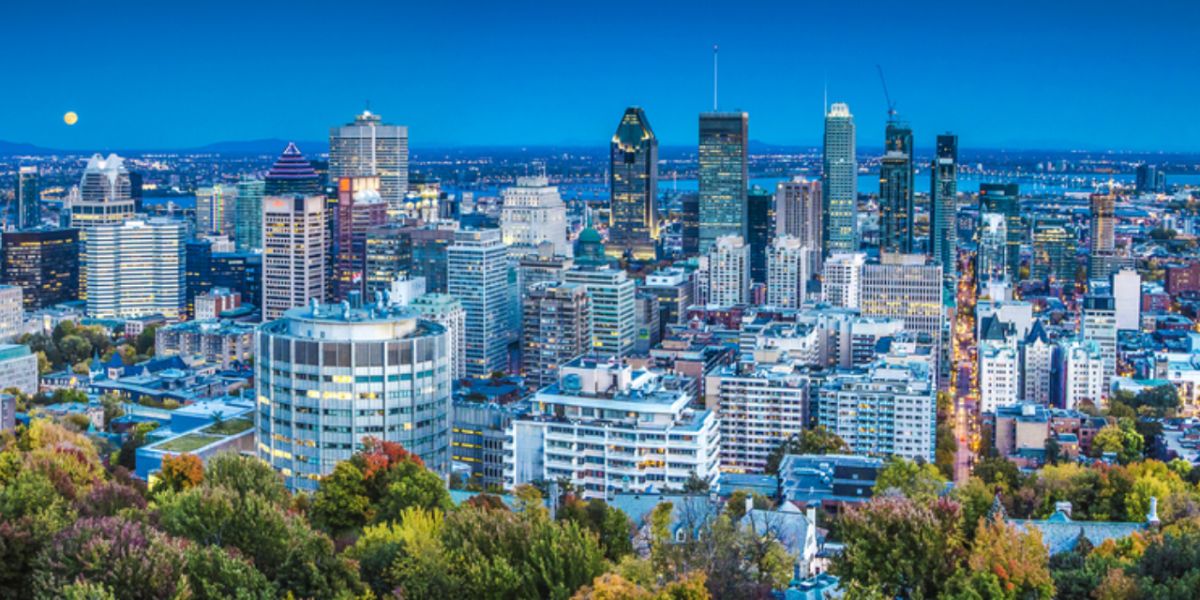
Montreal is a highly appealing city for those on the lookout for employment, boasting a low unemployment rate and a diverse economy. Below, you'll find some tips on securing the required authorizations and kickstarting your job search in Montreal.
With an unemployment rate of 4.7% as of the end of August 2023, Montreal's job market is in good shape. Nevertheless, competition varies by sector, and it's crucial to tailor your profile to meet Quebec's requirements. Keep in mind that the Quebec CV tends to be comprehensive, extending to two pages. It should detail your education and field of study, following your work experience, and also highlight personal accomplishments, along with any relevant volunteer experience. Including photos is not advised. Additionally, it's recommended to provide two or three references from past employers or teachers who can vouch for your professionalism and skills.
Work permits in Quebec
To work temporarily in Montreal, you'll need a job offer from a local company, and your employer must thensecure legal authorization for you to work in Quebec. The Temporary Foreign Worker Program (TFWP) allows Canadian employers to hire temporary foreign workers, given certain conditions. Your prospective employer needs to request and pay for a Labour Market Impact Assessment (LMIA) from Canadian Immigration and Citizenship Services. Additionally, they must obtain a positive assessment of the job offer's impact on the Quebec labor market from the Quebec government. Simultaneously, you must submit your LMIA application to both the Canadian and Quebec governments, along with the required documents. The LMIA application is processed collaboratively by both governments. If both market studies confirm the unavailability of a Canadian or permanent resident for the offered position, you can then apply for your work permit. In general, obtaining a Certificat d'acceptation du Québec (CAQ) from the Quebec government and a work permit from the Canadian government is necessary for temporary work in Montreal. However, if you hold a Working Holiday Permit, a CAQ is not required.
Some employers are not subject to the EIMT. If you speak French, explore the Mobilité francophone program or the Jeunes Professionnels permit (details below). Additionally, individuals in specialized fields, like performing artists, may work in Canada without a permit under specific conditions. Moreover, if you're applying for a Working Holiday Permit (WHP) or a post-graduation permit, you won't require a job offer. For more information, check the immigration and citizenship section on the Canadian government website.
In most cases, work permit applications must be submitted online via the Canadian government website. You can check processing times on this page.
Those holding a closed work permit have authorization to work exclusively for one specified employer. However, certain applicants may secure an open work permit, allowing them flexibility with no restrictions on the employer. This applies, for instance, to the spouse of an individual coming to Canada with a valid work permit for study or to work. In such cases, the spouse is not required to secure employment before arriving. If you plan to prolong your stay in Montreal, it's essential to renew your status at least 30 days before your work permit expires.
Good to know:
Depending on your country of origin, you may need to apply for a visitor's visa or Electronic Travel Authorization (ETA) in addition to your work permit. If you're considering permanent residency in Montreal, please note that all Canadian provinces and territories, except Quebec, can select candidates from the Express Entry pool, so you'll need to find another solution if you want to live and work in Montreal as a permanent resident.
Conditions for obtaining a work permit in Quebec
You must convince the officer that you will leave Canada at the end of the authorized period of your stay. You must also prove that you have sufficient funds to support yourself and your family during your stay in the country. You must be law-abiding, pose no danger to the country, and have no criminal record. A police certificate may be required. You must also be in good health and may be required to undergo a medical examination if necessary.
You must not intend to obtain employment with an employer on the list of ineligible employers. When you arrive, you must be able to provide any additional documents, at the officer's request, to determine your eligibility to enter the country.
International Experience Canada (IEC)
If your country of birth has an exchange agreement with Canada, and you are between the ages of 18 and 30, you may be eligible to come to Montreal under one of the three available IEC programs: the Working Holiday Permit (WHP), the Young Professionals Permit (YPP) and the International Co-op Internship Permit (ICP). EIC procedures are simpler than the traditional way of obtaining a work permit. They also take less time.
You must first register in the candidate pool on the Government of Canada website. You are entitled to register your interest in more than one program. IRCC regularly invites applicants from the pool to submit an application, known as invitation rounds. EIC programs are limited to a certain number of recipients per year. Invitations cease when annual quotas are reached.
The WHP allows you to travel and work in Canada for up to 1 or 2 years. You can change employers at will or choose not to work at all if you can afford it. The Young Professionals permit authorizes you to work for a single employer, to be found before your departure, in a field related to your studies. This permit, which is valid for a maximum of 2 years, is designed to give you your first work experience in Canada.
Finally, the Internship Co-op International permit is interesting if you need an internship to pursue your studies in your home country and have an offer from an employer in Canada.
Good to know:
The PVT is a program in high demand, and applicants are selected at random. Your chances of coming to Canada will be greater if you apply in the Young Professionals or International Co-op Internship categories.
Asking for help finding a job in Montreal
If you don't know where to start looking for a job in Montreal, you can contact a job search or newcomer assistance organization. Consult the Ville de Montréal website, the Canadian Immigration Services website or the Répertoire des organismes spécialisés en employabilité on the Quebec government website to find resources near you. These organizations generally offer training and workshops on the job market, as well as networking activities and mentoring programs. Some have computers and printers you can use to help you get started. Advisors can also help you write your CV.
The official website of the Quebec government recommends certain steps to optimize your job search in Quebec, and particularly in Montreal. You can apply directly to the Journées Québec recruitment events, consult Quebec company websites, check the Job Offers page or the Québec Emploi website. Please note that you won't be able to register on these platforms, except for Journées Québec, as the job offers posted are not intended for foreign workers. You can, however, explore them to help you identify Quebec employers who might be interested in unsolicited applications.
Good to know:
The Employer Portal is an online tool that allows Quebec employers to search for foreign workers matching their labor needs. If you have completed a declaration of interest in coming to Quebec, and have agreed to take up temporary employment here, your profile may appear in the searches carried out by employers in the Employer Portal interface.
Networking: an undeniable asset for finding a job in Montreal
Many job offers are never posted on the Internet or in job centers. An excellent way to find a job is to build up a network of acquaintances you can call on to help you land a job in your field. Networking events are held regularly in Montreal. Some are aimed at newcomers, while others bring together professionals by job field. To find out more, contact your local newcomer or job search assistance organization. You can also consult the following sites:
Board of Trade of Metropolitan Montreal
Jeune chambre de commerce de Montréal
Another way to build a professional network when you arrive in Montreal is to seek out the services of a mentor. Most newcomer organizations can put you in touch with someone in your field who can support you as you begin your adventure. Your mentor may be a native Montrealer or an immigrant who has been working in Montreal for a long time. You'll be able to ask him or her any questions you may have about the practices of your profession and the rules you'll need to follow in Montreal to integrate successfully. If you're lucky, your mentor might even ask you to come to work with him or her, and open up his or her contact book to you.
Finally, you should know that many trade shows are held in Montreal every year. Don't hesitate to attend these events, which will enable you to expand your network, learn more about practicing your profession in Quebec, and, who knows, land a job. Also, be on the lookout when you're walking around town: you'll regularly see posters mentioning job openings in stores and office windows. Don't be afraid to phone the companies you're interested in to say you'd like to work for them or even to drop by their offices with your CV tailored to the local market. It's a common and appreciated practice in Montreal.
Working in Montreal permanently
If you wish to stay in Montreal permanently, you may apply for permanent selection under one of the following programs:
- Quebec Experience Program (PEQ);
- Regular Skilled Worker Program (PRTQ);
- Permanent Immigration Pilot Program for Food Processing Workers;
- Permanent Immigration Pilot Program for Beneficiary Attendants;
If you have applied for permanent residence, you may also be eligible for a Transitional Open Work Permit (TOWP). See Renewing your authorization to work temporarily in Quebec to find out how.
Know your rights at work in Montreal
As a temporary foreign worker, you have the same labor rights and obligations as all workers in Quebec.
The Commission des normes, de l'équité, de la santé et de la sécurité du travail (CNESST) is the government agency responsible for enforcing Quebec labor laws. You'll find lots of useful information on the CNESST website. Consult the I'm a temporary foreign worker section, which describes your rights and obligations in the workplace and lists relevant publications, such as What you need to know about work.
For agricultural workers, publications on agricultural labor standards in Quebec and injury prevention in agriculture are also available.
The Quebec Charter of Human Rights and Freedoms protects your fundamental rights and prohibits discrimination. To find out more, visit the Commission des droits de la personne et des droits de la jeunesse (CDPDJ) website.
Useful links:
We do our best to provide accurate and up to date information. However, if you have noticed any inaccuracies in this article, please let us know in the comments section below.








